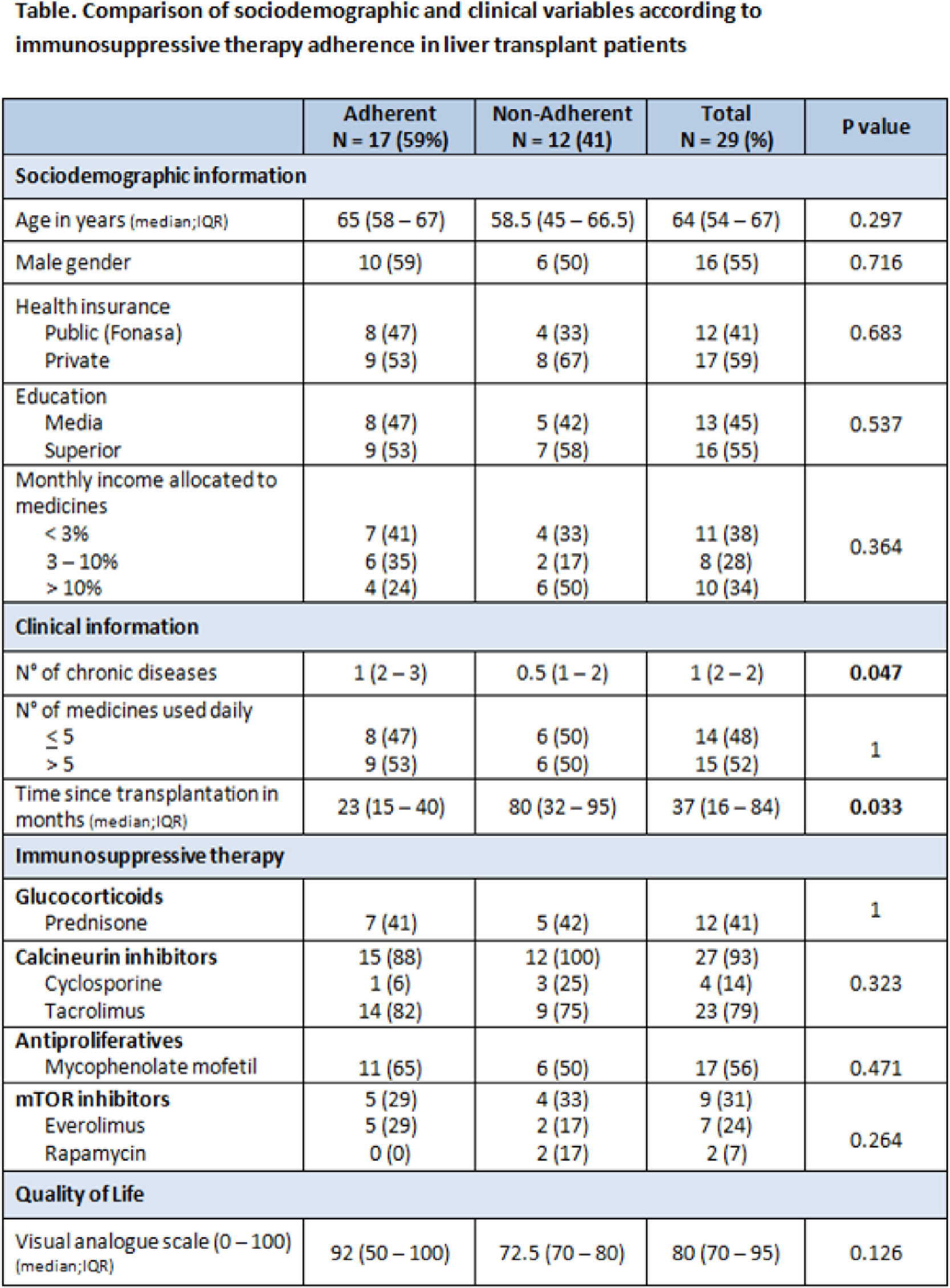
Abstracts of the 2024 Annual Meeting of the ALEH
More infoNo
Introduction and ObjectivesOne of the primary challenges following liver transplantation is preventing graft rejection, for which immunosuppressive therapy is essential. The success of this therapy depends, among other factors, on patient adherence to the prescribed medication regimen. The aim was to evaluate adherence to immunosuppressive therapy and the possible factors associated to adherence in liver transplant patients.
Patients / Materials and MethodsThis is an analytical, observational, cross-sectional study conducted with liver transplant patients between 2004 and 2023 at Hospital Clínico Universidad de Chile. Participants were required to complete two self-administered questionnaires: the "Simplified Medication Adherence Questionnaire" (SMAQ) to assess adherence (classified as adherent or non-adherent) and the "European Quality of Life-5 Dimensions" (EQ-5D) to assess quality of life. Additionally, a form was used to collect sociodemographic and clinical data, supplemented with information from the hospital's medical records. All data were recorded using the REDCap® platform.
Results and DiscussionThe study included 29 patients with a median post-transplant follow-up of 37 months (range: 1 – 237 months). Of these patients, 41% (12 patients) were identified as non-adherent to immunosuppressive therapy, with occasional forgetfulness being the primary cause. Analysis revealed that younger patients, those with less comorbidity, and those with a longer time since transplantation were less adherent to the therapy. Tacrolimus was the most commonly used drug, and no significant differences in adherence were found based on the type of immunosuppressant used. Adherent patients reported a better quality of life compared to non-adherent patients.
ConclusionsA significant proportion of liver transplant patients exhibit non-adherence to immunosuppressive therapy. Factors such as medication forgetfulness, time since transplantation, and the presence of chronic illnesses impact adherence. It is recommended to enhance patient-provider relationships, regularly assess adherence, and provide patient education to improve quality of life and minimize the risk of graft rejection.










